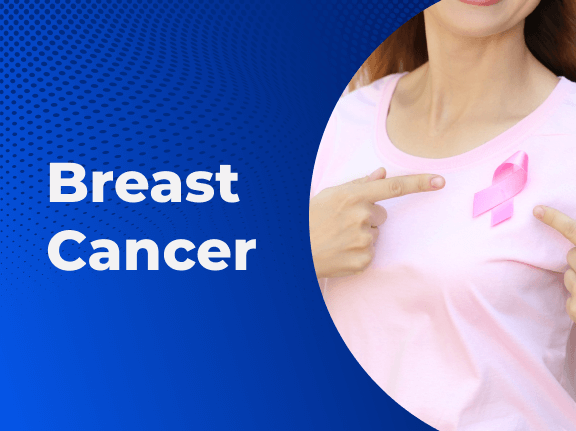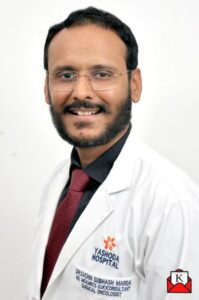Guest Blog: Complete Guide To Breast Cancer Screening


“Why me? What next?” were the questions that troubled Lavanya in February 2010, after a biopsy revealed a malignant tumor in her left breast. “The news was as hard as the tumor,” she recalls. Luckily for her, the tumor was detected early because she had been taking annual mammograms. The tumor could be cut away cleanly, and she didn’t have to lose her breast. Following surgery, as she regained consciousness, Lavanyawas overjoyed to find her breast intact.
In her case, the tumor had not spread and mastectomy—surgical removal of the breast—was avoided. Had it been a decade ago, it might have been a different story.
As always, the treatment of breast cancer depends on the stage at which it is detected and the condition of each patient. Indeed, earlier, in a vast majority of cases, mastectomy was the only option. Today, in up to some 60 percent of patients, surgeons remove only the tumor with a surrounding bit, around a centimeter, of normal tissue and lymph nodes in the armpit. This is called “breast conservation surgery,” and patients like Lavanya are usually given radiation and chemotherapy after the operation to reduce any chances of cancer coming back. Today, after radiation treatment and a grueling course of chemotherapy, 46-year-old Lavanya is in perfect health, said Dr. Sachin Subhash Marda, renowned Oncologist at Yashoda Hospital, Hyderabad.
In today’s era of stressful, competitive, and hectic lifestyles, working women neglect their own health. She always cares for the whole family but when it comes to her own health, she is on the back foot. You may have heard that women don’t have to worry so much about diseases because they have naturally good immunity, tolerance & patience.
Even though Soalpur-based housewife Prashanthi was diagnosed with breast cancer 4 months back, she insisted on postponing treatment until the summer holidays for her two school-going children. Another patient of mine LingammafromHyderabad, postponed her treatment by 6 months for her son’s marriage. In both patients, cancer progressed to an advanced stage. But they don’t understand that Cancer is not going to wait or stop growing for you and me.
Prevention is always better than cure…..
Our standard guideline suggests that women should undergo a mammogram at age 40 and should be made part of an annual health check-up. Since digital imaging is clearer, sharper, and offers better magnification, fewer repeat procedures are needed. “However, the equipment alone doesn’t suffice,” says DrSachinMarda, “We need experienced radiologists who can interpret the results more
accurately. This will help us catch breast cancer at the earliest.”
Regular self-examinations are important. We advise women to make a self-examination of their breasts a regular habit. It is simply a question of checking to see if there are any changes in the appearance of the breast or feeling of a lump.
Why is this so important?
The incidence of breast cancer in urban India is rising. And recent studies show that the incidence of breast cancer has overtaken cervical cancer, cited as the most frequent cancer in Indian women. An average of one in 28 women in India who will develop breast cancer during their lifetime. Due to rapid urbanization and the westernization of lifestyles, there is a rising incidence of breast cancer in India.
Several factors can contribute to developing breast cancer. Some of these factors are lifestyle choices and some are biological characteristics.
KNOW YOUR FAMILY HISTORY
Knowledge of which diseases run in your family, especially those that developed before age 50, can sometimes help determine which tests a woman may need, and when.
After Bhavana, a Himayath Nagar-based mother of two boys reached menopause at 40, I advised her to perform regular breast self-examinations, stressing that Bhavana had a higher risk of developing breast cancer because she had reached menopause at a comparatively early age with a positive family history of her mother was diagnosed and treated for breast cancer. “Two years ago, when I was 52, I detected a pea-sized mass in my breast and immediately reported it to my doctor. I was found to have a malignant tumor.”
Risk factors for breast cancer:
Family pre-disposition:
If a family member has developed breast cancer in the past, or currently has breast cancer, women in that immediate family have a greater risk for breast cancer.
Age:
As women become older, the risk for breast cancer increases. Most cases of breast cancer are found in women over 40, though the number of younger women developing breast cancer is currently on the rise.
Reproductive and menstrual history:
Women who experienced their first menstrual cycle before age 12, had their menopause after age 55, and/or never had children have increased risk.
Body weight:
People who are obese or overweight face a greater chance of developing breast cancer than those who are of normal weight.
Diet:
A high-fat diet increases the risk of breast cancer. Fat triggers the hormone estrogen, which fuels tumor growth. Eat a low-fat, nutritious diet. Fill your diet with plenty of fruits and vegetables.
Tobacco/Alcohol consumption
Signs of breast cancer:
- Painless lump in the breast
- Dimpling of skin over the breast
- Rash or ulcer over the nipple
- Indrawing of the nipple
- Blood-stained discharge through the nipple
- Lump or fullness in the armpit
If any of these is found in the breast self-examination, then you should consult your doctor. Please remember that early detection leads to a complete cure.
How does the doctor diagnose breast cancer?
When you see a doctor for a lump in the breast, he would examine your breast thoroughly. It may not always be possible for him to say what the lump is. He may run some tests to be sure about the character of the lump.
The tests commonly used are –
- Fine Needle Aspiration Cytology (FNAC) or biopsy: This involves taking out a few cells from the lump with a thin needle and examining them under a microscope.
- Mammography: This is a special type of X-ray of the breast to detect breast lumps. It allows your doctor to assess the extent of the tumor in the affected breast and ascertain whether there is any abnormality in the opposite breast.
- Other tests: The doctor may also ask for other tests like a chest X-ray, abdominal sonography, bone scan, and PET scan. These are required to see if cancer has spread to the rest of the body.
What are the various treatment options?
The doctor chooses the treatment modality after many considerations like the stage of disease, logistics of treatment implementation, and your choices. Hence two patients in the same stage may receive different treatments.
-
-
- Surgery
- Radiotherapy
- Hormonal therapy
- Chemotherapy
-
If you have any questions about your own treatment don’t be afraid to ask your doctor. It is always better that you make a list of your queries before you see the doctor. Treatment varies with stage, age, pathology, economic status, etc. Hence, do not compare your treatment with others. Ensure that you have been thoroughly counseled regarding surgical options, chemotherapy, and radiotherapy. You can also get valuable advice and support from patient groups..
EXERCISE & HEALTHY DIET
Regular exercise gives you more energy for the rest of your day. Plus, it fights stress, lowers the risk of a slew of diseases, and boosts overall health. And it promotes weight loss. A healthy diet as per the diet pyramid is one of the important cornerstones of overall health. A square meal diet with plenty of green vegetables, sprouts, and fruits with less oil, salt, sugar, and spices is the key to good health. Please consume 3- 4 liters of water every day.
Dr. Sachin Marda recommends 20 minutes of physical activity five days of a week. Even things like walking and gardening count. Muscle-strengthening exercises, Pranayams, Yoga, and meditation are also important.
About the author- Dr. Sachin Marda, Senior Consultant Oncologist & Robotic Surgeon (Cancer Specialist), Yashoda Hospitals Hyderabad
